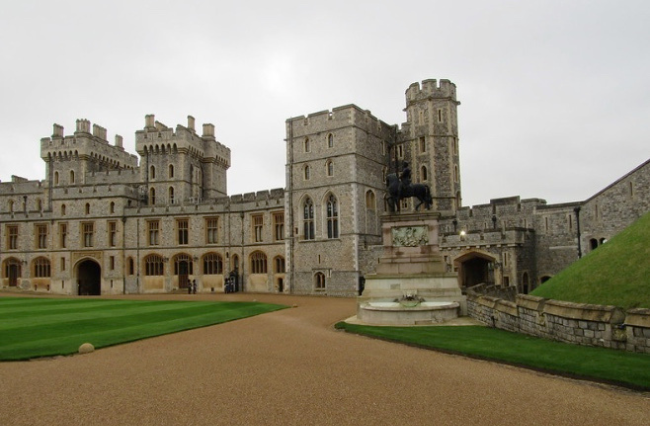Buckingham Palace has rejected a repeated request to return the remains of an Ethiopian prince who was buried at Windsor Castle in the 19th century.
Prince Dejatch Alemayehu of Abyssinia, who was the son of Ethiopian Emperor Tewodros II, was buried 144 years ago after he was captured by British troops and brought to the UK at the age of seven in 1868.
His body was buried at St George’s Chapel in Windsor after he had died from a lung condition at age eighteen in 1879, as per Queen Victoria’s request.
Ethiopia has been requesting the prince’s remains and other treasures to be returned for over 150 years.
Fasil Minas, a relative of Alemayehua and descendent of the Abyssinian royal family, told the BBC: “We want his remains back as a family and as Ethiopians because that is not the country he was born in.”
But the palace has said that removing the prince’s remains would disturb other human remains buried nearby.
“The Dean and Canons of Windsor are very sensitive to the need to honour the memory of Prince Alemayehu,” Buckingham Palace said in a statement to NBC News on Tuesday.
“However, they have been advised that it is very unlikely that it would be possible to exhume the remains without disturbing the resting place of a substantial number of others in the vicinity,” the statement said.
The prince had been taken after his father committed suicide due to British troops defeating him and looting his imperial capital at the Battle of Magdala in Ethiopia – one of the most notorious military operations of Britain’s colonial era.
He was brought to an orphanage after his mother died on the journey to London. From there, Queen Victoria reportedly took an interest in him, arranging his education and eventually his burial.
Jeremiah Garsha, an expert in the looting of human remains at University College Dublin, told the NBC there is “no doubt” that Alemayehu was stolen.
“He was, he was kidnapped,” he said.
“You have a minor coming to another country as an orphan after his mother dies and then he himself dies at 18 — something should feel wrong about that. He’s looted as well, like all the other curios and treasures that were taken.”
“You wouldn’t kidnap a white child; Victoria’s not going to end up with a child from [London suburb] Camden Town — there has to be a racial element, the foreignness for this prince to come and be at the palace,” Garsha said.
Many of the treasures that were taken remain in the British Museum, which has led to several countries requesting for the British government to return items that were stolen during the colonial era.
Photo: Windsor Castle by Rckr88 available HERE and used under a Creative Commons license. This image has not been modified.








